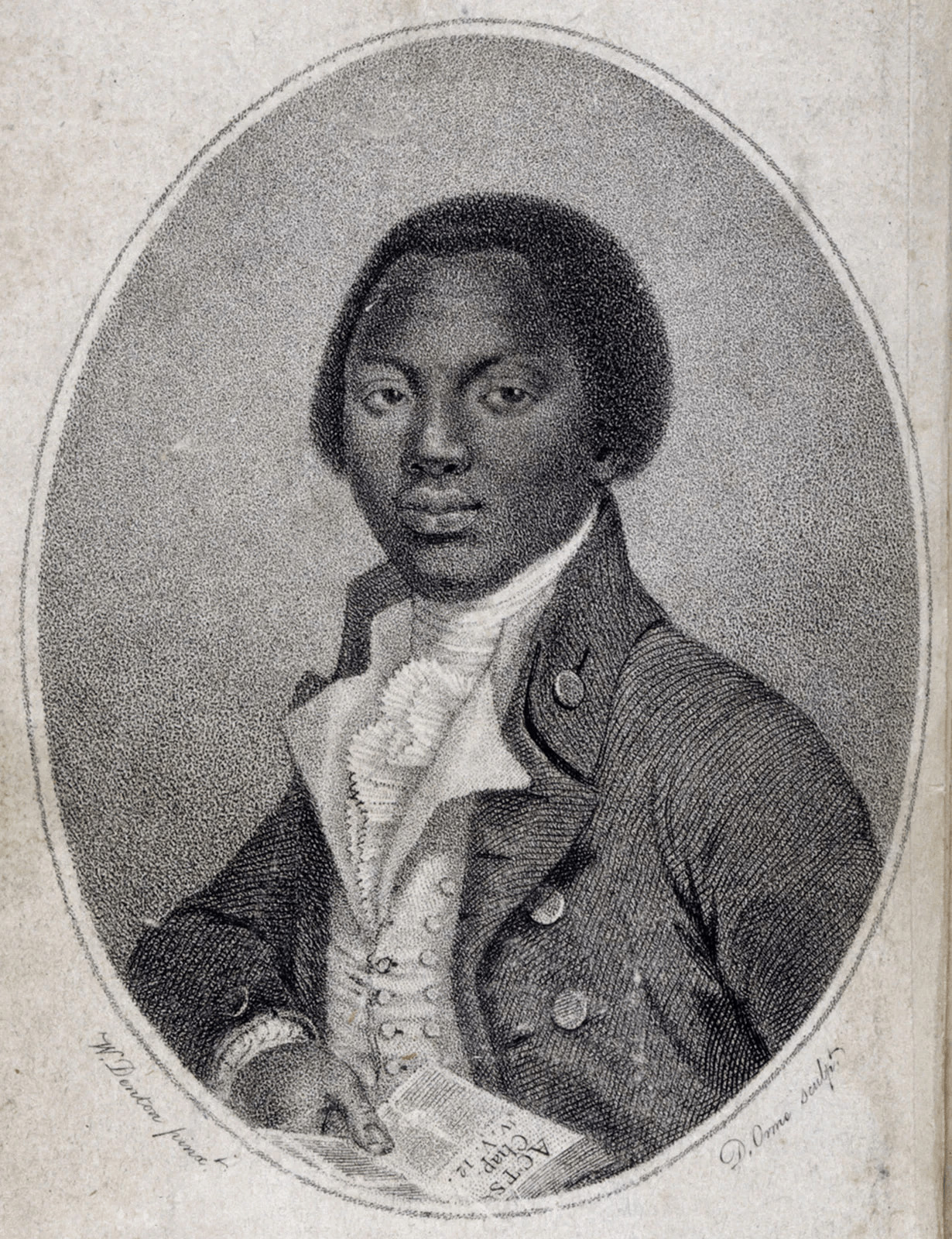Religious Validation in Equiano's Narrative
Throughout his narrative, Olaudah Equiano paints himself as the poster child of faith, orating his conversion to Methodist Christianity and his subsequent journey to prosperity on Earth. He describes himself "a particular favourite of Heaven" (Equiano), and writes incredibly in-depth praises to the most high. However, although Equiano is writing strongly about his faith and the meaning of living a fulfilling, holy life, he is also seeking to gain one thing from the audience seldom given to people like him; narrative trust. Equiano knows, from the image of himself at the beginning of his narrative, Bible in hand, that he must first show that "the Christianity he embraces is the defining feature of his life-story." (Elrod 409) As a freed slave living in England, although Equiano enjoyed more freedoms there than in many places of the world, his views on the abolition of the slave trade were unpopular at best. Equiano knew that his position would be easily dismissed if he wrote a speech or document surrounding his personal views on the topic, so instead, he took a different approach; first gaining the validation of the audience as a Christian narrator while at the same time pushing his views on abolition as the morally right course of action.
In doing this, we see an Equiano who is presenting a conflicted, somewhat guarded view of himself. It is clear in his narrative that his identity was influenced by the environment around him, with him remarking in the early pages of the narrative that he was made to think white people "were much happier than Africans" (Equiano 83). This leaves readers to assume that Equiano was very much aware of how he must present himself to gain the trust of his white peers. The writings of his conversion and his subsequent plunge into the faith allow him to structure his argument to appeal to the "profound contradiction among religious values of compassion, mercy, and justice-which he believes his readers share with him" (Elrod 410). He utilizes the Old Testament to provide biblical context to his argument since many of its stories contain God's opposition to the oppression of Jewish peoples. By first providing himself enough religious authority, Equiano then takes the approach of condemning the violence of the slave trade by appealing to the morals of his Christian audience, allowing himself to form a "common humanity and religious belief with his largely Christian audience, assuming, as would most of his readers, that any individual life-story has meaning within a larger supernatural paradigm" (Elrod 411). Equiano utilizes this commonality he forms with his readers to discuss the Ebo culture that he grew up around, using Old Testament stories to show the geographical proximity to "Ebo and biblical Hebrew cultures, he challenges readers' assumptions about "primitive" behavior, asking them, in effect, to recast their favorite Bible stories in a contemporary, specific, African setting" (Elrod 412). He uses his account to transcend skin color, due to his close experiences with death and seemingly divine interventions with death. Forming this credible, guarded Christian identity he creates throughout his narrative allows Equiano to influence the views of his audience and the success of his narrative resulting "in the financial success he had hoped for" (Equiano 21), allowing him to continue his work in the abolitionist movement in England and beyond.
